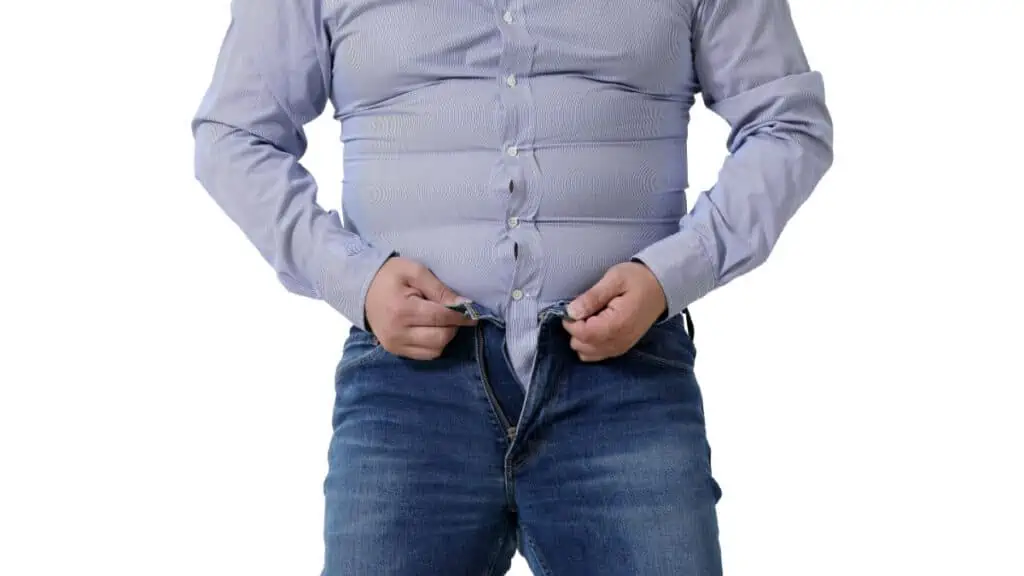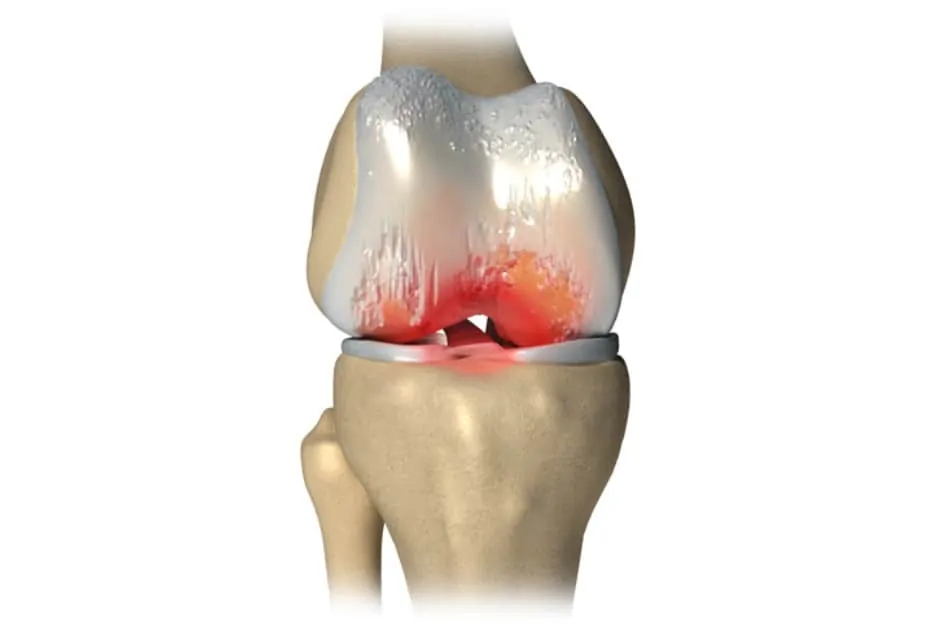Being fat sucks.
At least, that has been my experience. However, it doesn’t suck for the reasons that most people think. It’s not being a bit too sweaty or breathing hard when going up stairs that rank as the worst parts.
It’s simply the way we’re perceived.
It’s hard to be confident when you’re fat simply because everyone looks at you with pity (at best) and loathing (on average).
So how do you actually develop confidence when you’re plus size (or obese)?
Well, before we get into it I’ll tell you a secret.
If you’re fat and have low confidence…don’t blame the fat.
In my experience (and my past) I’ve noticed that overweight people use their weight as a scapegoat for their lack of confidence and experience. Many people who lose a significant amount of weight are surprised to feel that they’re not magically more confident.
Instead, some other “problem” or insecurity stepped up to take the place in destroying their confidence.
Like happiness, confidence is a muscle, a skill if you will, that must be worked on regularly if it is to flourish.
So how do you do it if you’re fat? Well, pretty much the same way as everyone else.
5 Tips For Feeling Confident If You’re Overweight
1. Build Self Efficacy
You’ve probably spent most of your life hearing about self-confidence, how important self-confidence is, and how you can build it. Well, that’s putting the cart before the horse. Having self-confidence is merely a side effect of living according to values that you hold dear.
Any attempt to bypass self-development and just build self-confidence is destined to fail.
However, there is something that you can actively build that will increase your self-respect, and that is self-efficacy.
Self-efficacy is the belief that you have the ability/capacity to succeed in a specific situation or accomplish a task.
If you have a high level of self-efficacy at work, for example, you are confident that you can act properly to achieve specific goals.
And how did you get good at your job? Iteration. It’s simply years of repetition that allow us to build confidence through competence.
I’m sure we all know the person who is confident and competent during the work day but, at the annual Christmas Party, they are sullen and quiet. They are out of their comfort zone and no longer have the self-efficacy necessary to succeed in a different situation. Well, it doesn’t have to be that way. The more self-efficacy you build the more it bleeds over into other areas of your life.
Your mind thinks, “I’ve been successful in dozens of novel situations in the past, it’s reasonable that I could be successful in a new situation that I have not yet experienced…”
Every bit of success you have is an important building block.
And by “success” I don’t actually mean you have to succeed at something or be even remotely good. Sometimes just getting yourself to try something is a massive success.
And that builds self-respect.
Trying new things and getting out of your comfort zone is the fastest way to build yourself up. So try rock climbing, or new a new recipe, or start a TikTok dance challenge (or maybe don’t do that…)
Whatever you decide to do, developing yourself through acquiring new skills will put you on the fast path to confidence.
2. Build A Domain That Instills Confidence
Many old-school parents (especially dads) are emotionally incompetent.
This is seen particularly in situations where their child is scared or even hurt. They encourage the child to “walk it off” or deal with it on their own. They think they are toughening up their child and helping them build self-efficacy.
They are wrong.
The bravest, most adventurous, and resilient children are those that know that they have a safe space to return to when things go wrong. A child knowing that they can return for hugs and comfort doesn’t make them a mama’s boy, it makes them more likely to push the boundaries.
Your brain is pretty much a child.
You need to strike out to build confidence from a place of strength. You might not be ready to head to the gym yet but you can do some exercises at home. Maybe do some private yoga sessions. You don’t have to jump straight in with the sharks.
Start with an area of existing confidence and branch out from there. It will be more effective, more comfortable, and you’ll be less likely to give up the day after you start.
This can be as simple as dressing in a way that you really like, driving a car that you enjoy, or hanging out with a new friend at your house where you are already comfortable. Baby steps.
3. Work On Non-Fitness Related Goals
When I was entirely focused on losing weight I was as unhappy as I’ve ever been in my life.
I tried to motivate myself through everything from positive mantras, to self-flagellation (pretty much…).
None of it worked. The hyper-focus on where I wanted to be just reminded me that I wasn’t there yet. I have consigned myself to unhappiness until I reached that future point.
I didn’t have any success until I designed a weight loss program that was not my main focus. Rather it was a low-key program/lifestyle that I could maintain long-term and I told myself that I was 2 years away from significant results.
And then I went back to doing other important life things and let my weight loss program run in the background. It allowed me to develop more skills, lose more weight, and be happy in the meantime.
This is true in areas outside of weight loss as well. Create a system that you know will give you success and then just accomplish the steps in the system rather than obsessing over the outcome.
4. Take Ultimate Responsibility
If something in your life is someone else’s responsibility, how can you ever expect to fix it?
The only way that you can start fixing things in your life is to accept that everything in your life at this moment is your responsibility to deal with. Whether it was your “fault” or not.
I have a good friend whose daughter was born with a horrible disfigurement that has required many surgeries. Was it anyone’s fault? No, but it sure as heck is his responsibility to deal with the situation.
The same line of thinking follows if you’ve had childhood trauma, been cursed with fat genetics, or lost a child unexpectedly. Is it your fault? No. But it is your responsibility to deal with it in your life.
Once I realized that it was my job to fix my life I stopped blaming people for their negative roles and was able to make some progress.
5. Be Kind To Yourself
People who are incredibly kind and gentle with others are often complete monsters when it comes to self-talk.
Would you be friends or roommates with someone who talked to someone who talked to you the way your talk to yourself?
Well, since you have to live with yourself, treating yourself with kindness and understanding will be much better for your mental health.
Not to mention that it’s more effective.
If you have a roommate who won’t take out the trash, you don’t verbally abuse them and drag them through the mud until they finally do the thing.
Your brain needs the same kid-glove treatment.
If you want to accomplish something, work with yourself, find out why you haven’t been, and make a plan to move forward in a way that doesn’t make you feel negative.
Once you start treating yourself as a struggling friend that you care deeply for rather than a lazy worm that doesn’t want to do daily tasks you’ll be able to reach further and feel better about it.
I’m fat. And?
In my younger days, I spent several years living in Africa and doing volunteer work.
I was surprised to learn that being “fat” is not a negative label. It’s not unusual to meet someone who has grown up and make a comment on how they’ve “added weight”.
When women get older and bear children, they’re expected to get bigger. When men have a comfortable job and are the patriarch of a family, they’re expected to get bigger.
Overall, I feel that this is a much healthier mentality.
In the United States, if someone says that I’m fat they usually are trying to be insulting. That’s because being “fat” also carries the connotation that I’m ugly, or disgusting, or something else.
But that’s not actually true.
I’m just fat. Full stop.
“Fat” is a valid descriptor of my size and that’s it. It says nothing about my intelligence, attractiveness, willpower, or anything else.
Conclusion
Building confidence when you’re a big guy or girl can be difficult as you’ll be fighting against the attitudes of people who think you should be sad and downtrodden.
It’s perfectly okay to be fat and to be okay with being fat.
While that won’t protect you from all the people who are projecting their own insecurities onto you, it will at least make it a little more comfortable to live in your own skin.
So be fat and comfy! It’s okay to just be you!








